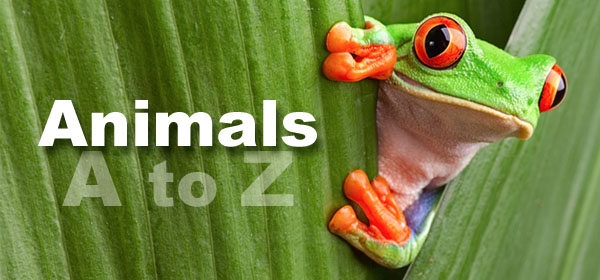If you have visited us over the last year, you will have noticed that we have had some new arrivals to the reptile house in the form of baby Hermann’s tortoises. In total, we have had six of these shelled reptiles hatch out since 5th March 2024. The parents of these babies can be found in our mixed Mediterranean tortoise enclosure located at the side of the Reptile House.
Our Mediterranean tortoise enclosure houses a mixture of Horsfield’s, Hermann’s and Mediterranean spur-thighed tortoises which all inhabit dry grassy areas in the Mediterranean. These areas have faced some habitat loss but main threat to these species is capture for the pet trade, which was especially bad during the 60s and 70s. However, there are now protective laws in place that means that you cannot import or export these tortoises without a licence. This has led them to be recognised as vulnerable by the IUCN red list. It may surprise you to learn that tortoises all have individual personalities. For example, if you are ever walking past the tortoise pen and you see a keeper being followed around, I can guarantee that this is Calzone the Hermann’s tortoise, trying to grab some attention.
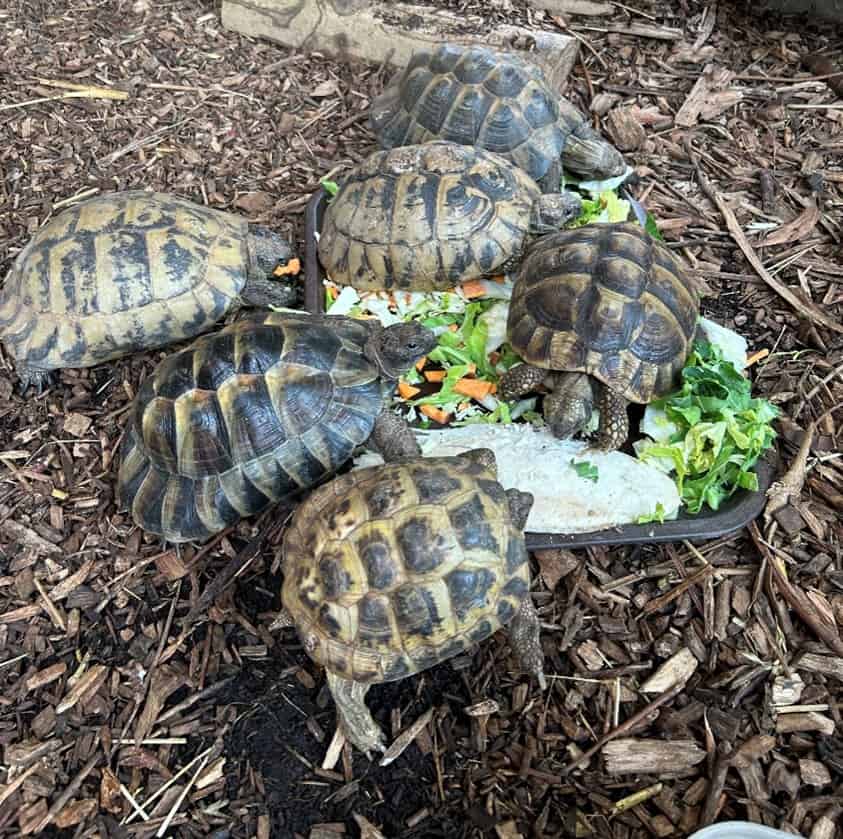
Six of our Mediterranean tortoises enjoying some breakfast
Now for the fun part…
The Babies
The Hermann’s tortoise breeding season is usually after the tortoises emerge from their hibernation in early Spring. Males will often ram females until she allows them to breed with her. After a successful pairing, and a few months have passed, the female will dig herself a hole and lay between one and four eggs. After about eight to ten weeks, baby tortoises will emerge from the burrow. Here at the zoo, we do things a little differently than the wild. We allow our female tortoises to lay their eggs as they would in the wild, but we then dig up these eggs and incubate them in the reptile house to prevent them from getting damaged by the other tortoises and to increase the success of the eggs hatching.
Ping and Pong
The first two of these babies to hatch were Ping and Pong. Ping made their arrival into the world on 5th March 2024. Their sibling soon followed, hatching on 6th March. Tortoises do not hatch out of their egg quickly; Ping took over 24 hrs to fully emerge! These two now live off-show in the reptile section’s kitchen area as they outgrew their on-show enclosure in less than a year!
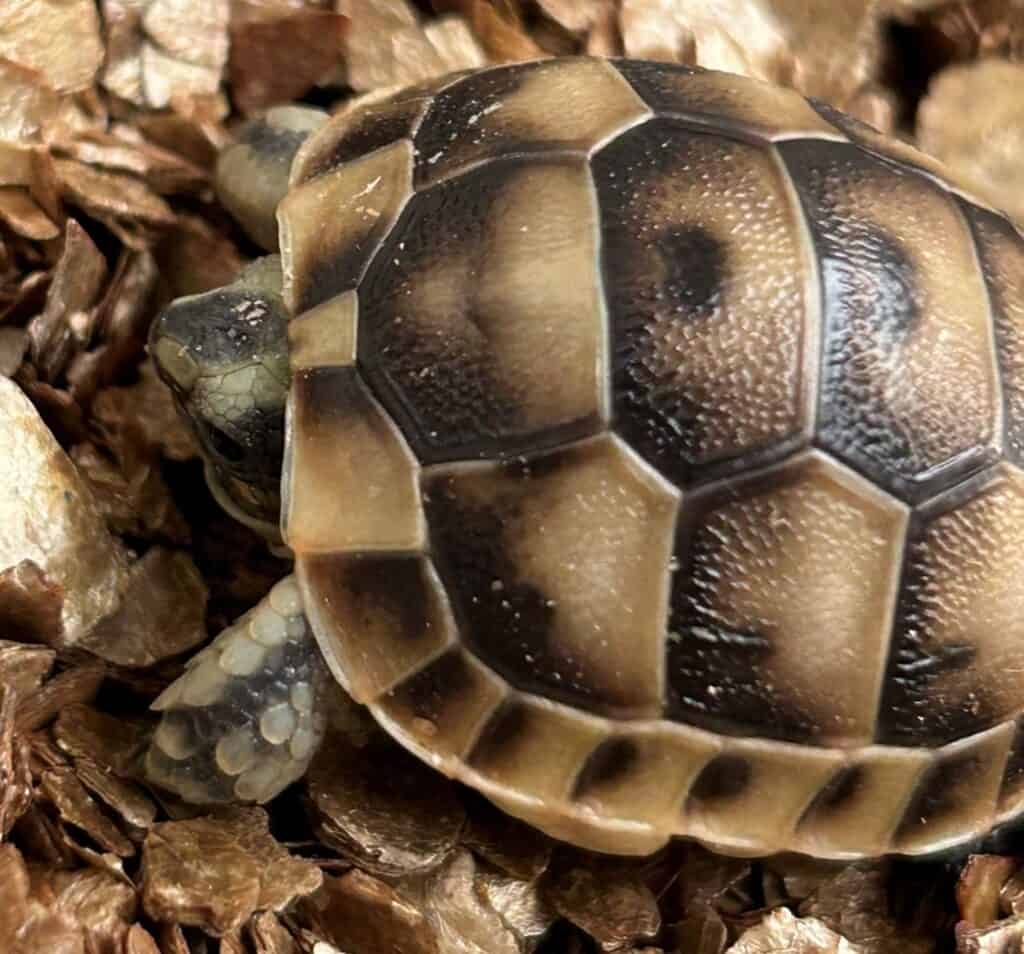
Freshly hatched Ping
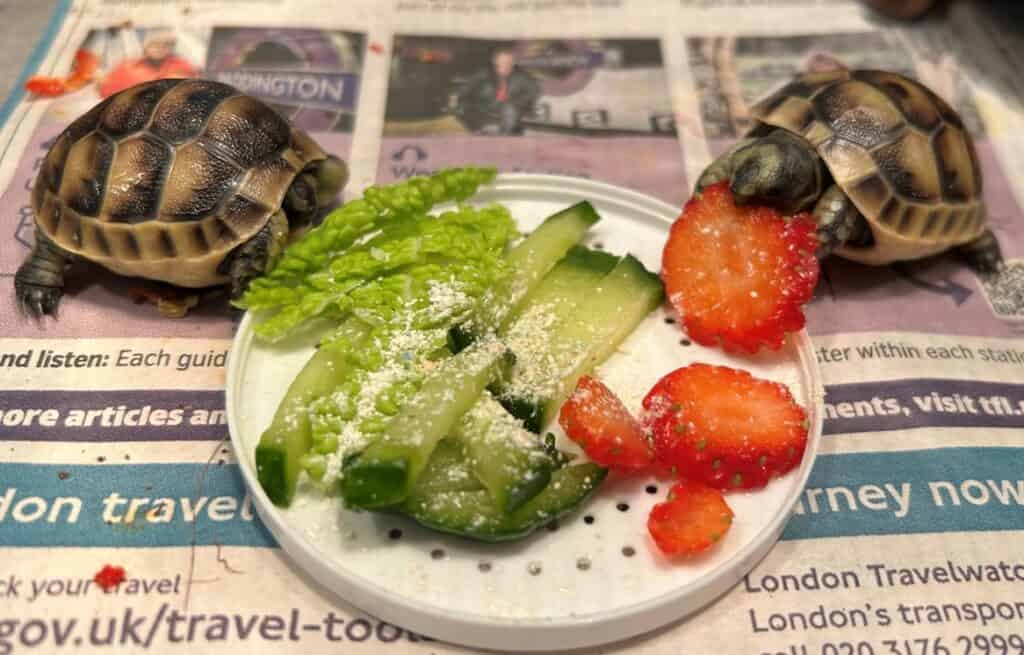
Ping and Pong enjoying their dinner (9th March 2024)
You may wonder how a tortoise is able to get out of an egg and why does it take so long. So, a tortoise can hatch out of its egg because it is born with an egg tooth, which is a sharpening of the tip of its ‘beak’ that allows the baby to puncture the egg. After puncturing the egg, the hatchling may sit inside it for a day or two, fully absorbing all remaining yolk.
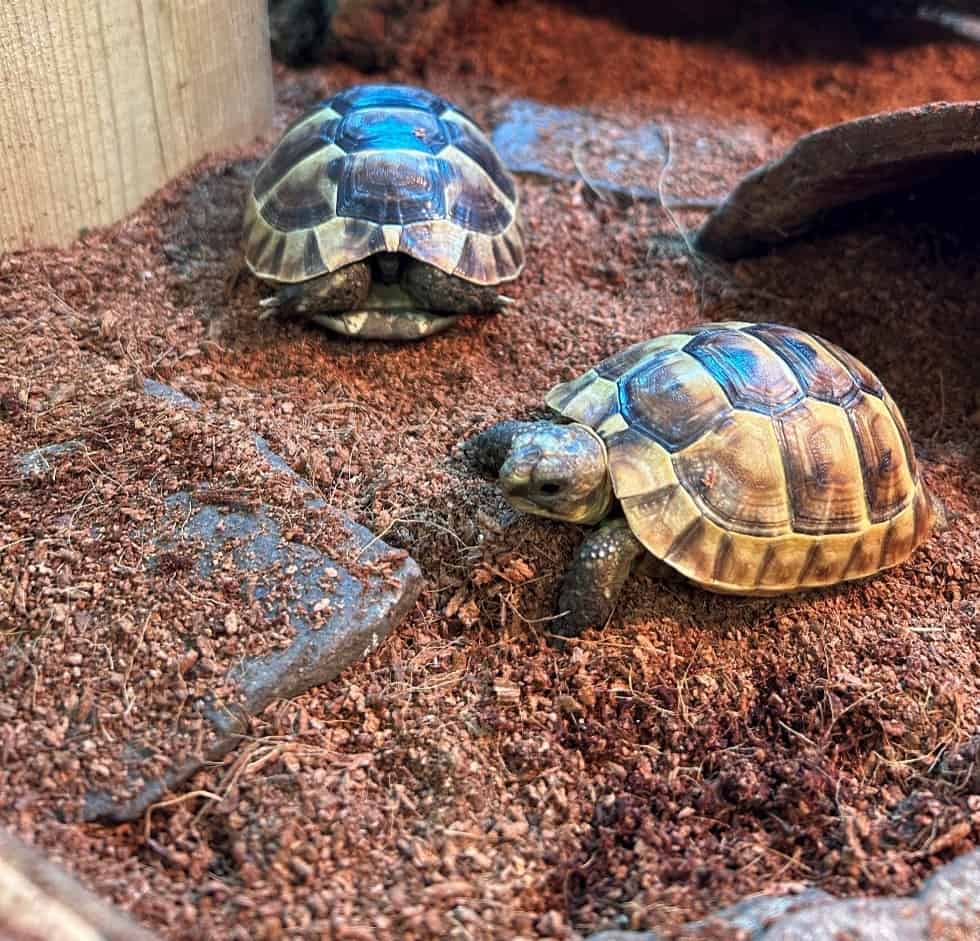
Ping and Pong (14th February 2025)
Bish, Bash and Bosh
The three baby tortoises we currently have on display in the Reptile House are called Bish, Bash and Bosh. They all hatched in late August last year!
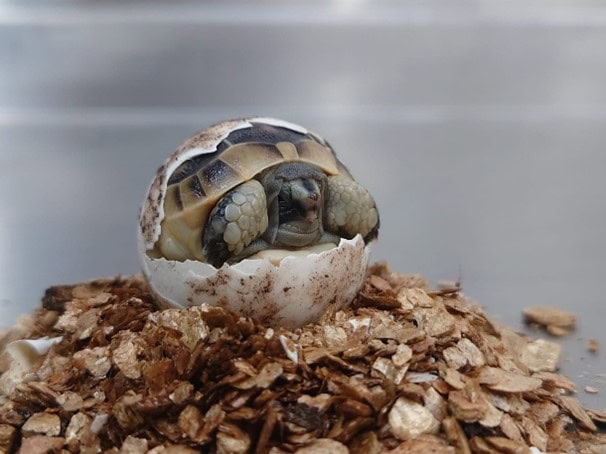
Bish, emerging from their egg
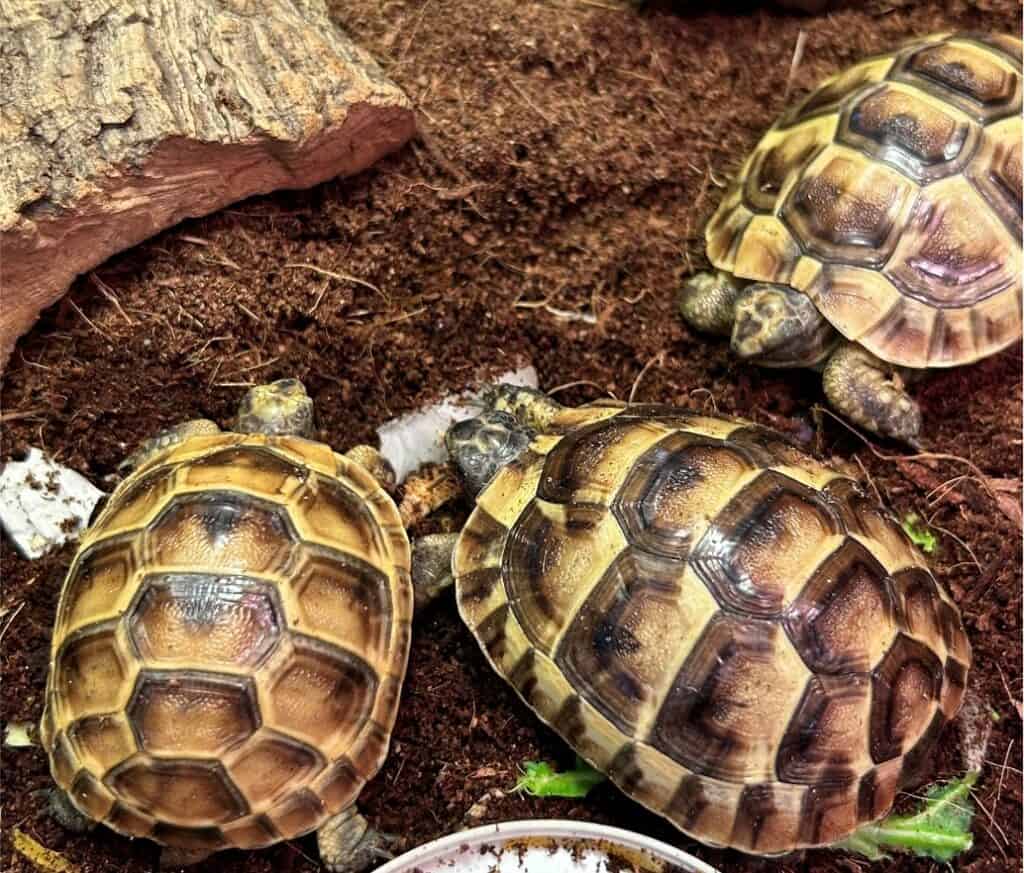
Bish, Bash and Bosh now
Pip
Our latest arrival, Pip, began hatching on Thursday 13th February 2025.
It started with a tiny bit of face emerging from the egg. If you look closely at the images below, you can see how the beak of the tortoise is quite pointed which allowed them to open the egg.
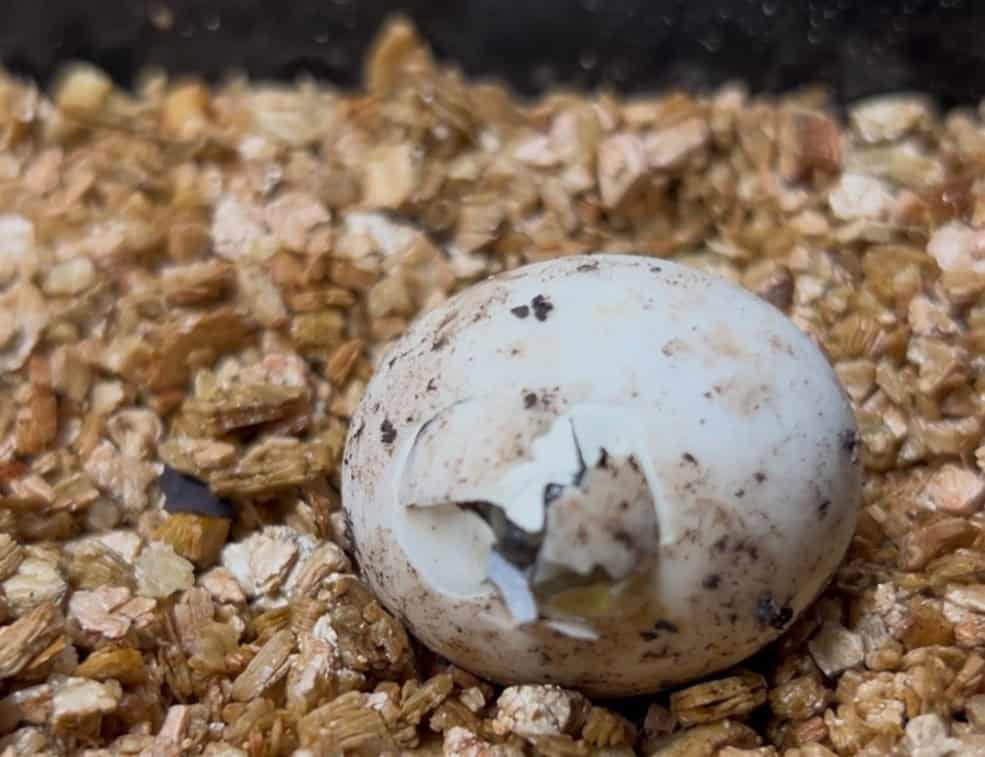
- Pip breaks the egg with their egg tooth.
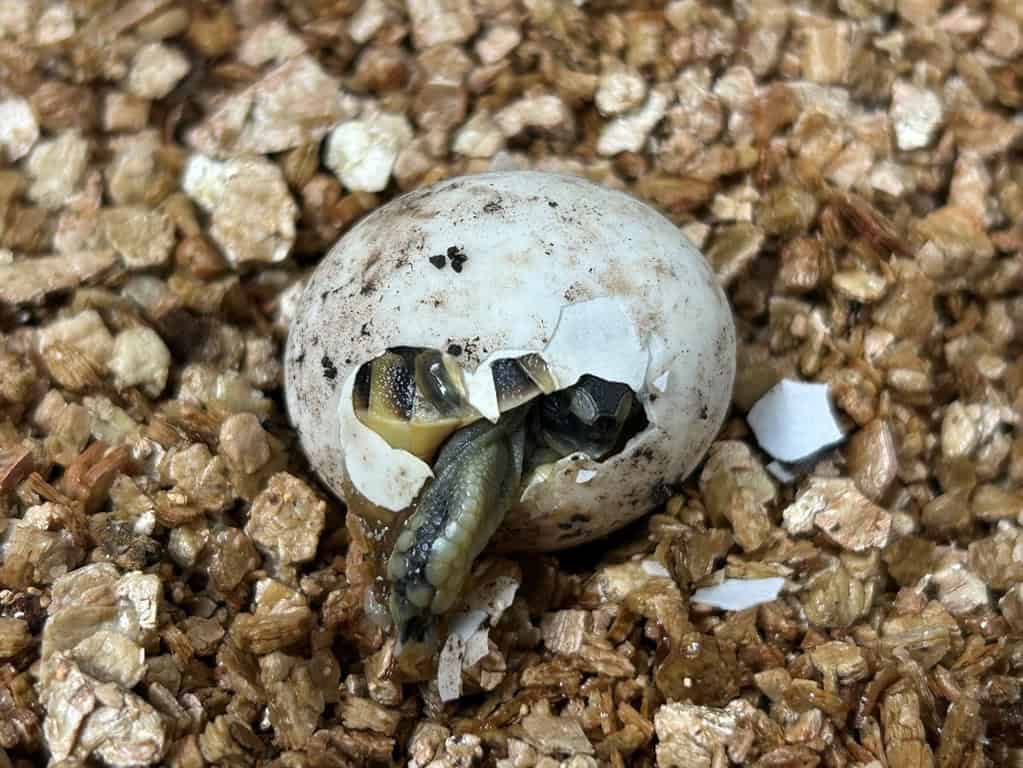
3. On Friday 14th February, Pip decided to poke one of their legs out of the shell.
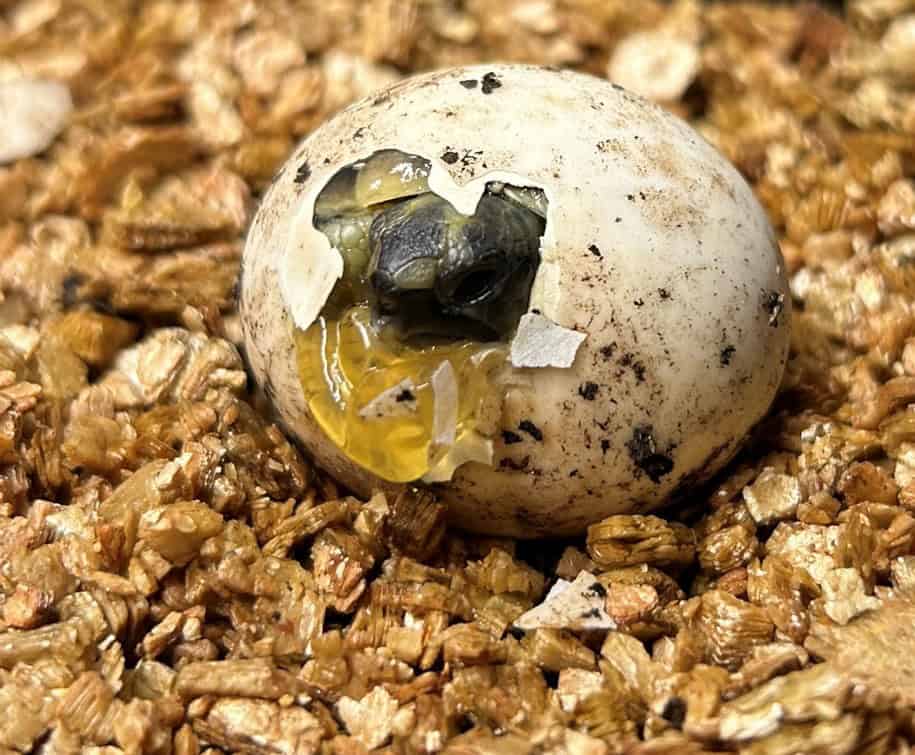
2. you can see the yolk that remains in the egg for Pip to absorb.
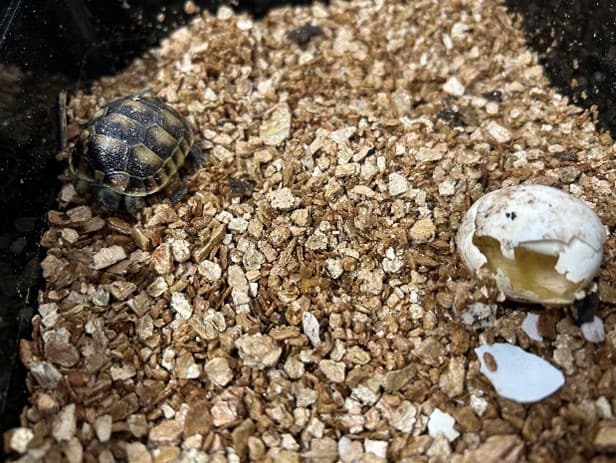
4. And on Sunday 15th, Pip finally burst free of their egg before the keepers arrived in the morning.
Here is a size comparison of newly hatched, Pip:
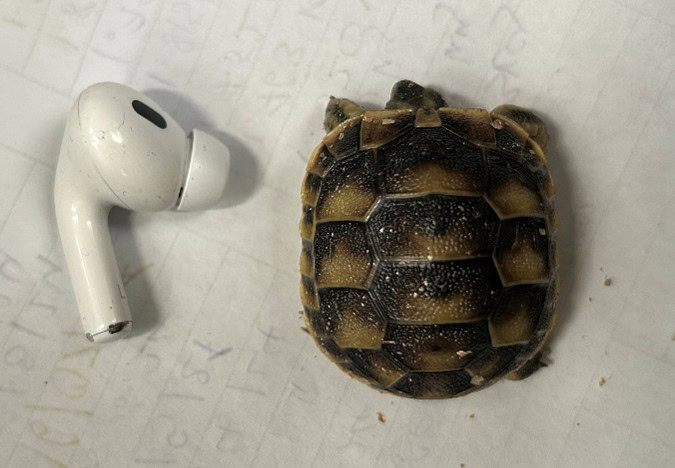
Pets?
Something I hear a lot whilst working around the tortoises and in the Reptile House is just how much people want these baby tortoises as a pet. I am here to tell you please do not rush out and buy one based on how cute they are at under a year old! These guys will be fully grown within five years and will probably outlive you as they can reach upwards of 80 years old! Tortoises are also commonly put up for adoption so please, if you do your research and find a tortoise is for you then don’t shop for a baby, adopt the adult that can spend the rest of its life with you!
By Beth, Deputy Head of Reptiles and Invertebrates.
